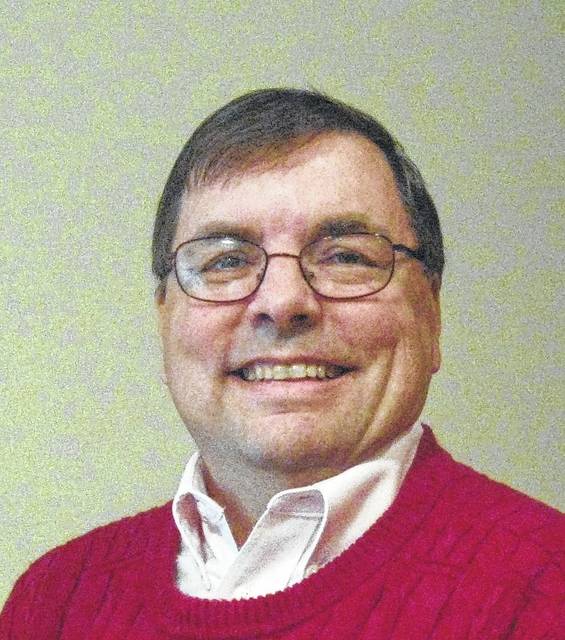
In just a few days, I will be experiencing a milestone of sorts — another birthday. And, as if they all are not significant, this one is significant.
I was struck by its significance a few months ago when one of my friends, who was experiencing the same birthday then as I am now, proudly proclaimed that he was now entering his eighth decade of life.
Thinking he was talking about his 80th birthday, I said to myself, “He doesn’t look that old!”, but then realized he was talking about his 70th, not his 80th!
This birthday is especially important because I do not feel “old”! In fact, I found myself reeling in shock when a few months ago, my youngest son referred to me as “elderly”! When I think about “elderly”, I recall the picture of my grandparents when they retired (at age 65!) — now they were old! — but not me!
But wait! Turning 70, to the majority of people, may indeed mean I am “old!” But I simply choose not to embrace it as such.
A few years ago, Robert Fay wrote about an exchange between 63-year-old Elizabeth Bishop and her long-time friend and fellow poet Robert Lowell, who was then 58 and just two years from his death.
“I’m going to be very impertinent and aggressive,” she wrote. “Please, please don’t talk about old age so much, my dear old friend! You are giving me the creeps.”
In many ways, Bishop’s admonition of Lowell is the perfect expression of a particular antagonism toward the changes and challenges brought on by aging. This discomfort isn’t simply garden-variety fear, or even denial, but an insurgency-like resistance.
Much of the emphasis in our culture today is supportive of that attitude about growing older. For most, if not all, of my life, the films, the advertisements, the popular music, the television programming has always been dominated by the young, and, according to Fay, “the inner lives of late-middle age and elderly Americans remain the unexamined deep sea of the culture” (“Letters to Aging Writers”, The Atlantic, 12-11-16).
But contrary to that, on the brink of my 70th, I choose to embrace my age.
Our local church here is composed of about 1,500 people, most of who are 55 years of age or older, and our focus is simple: “If you’re not dead, you’re not done!” That mantra has been proclaimed loud and clear for each and every one of us to claim and to live out.
And each and every week, hundreds of people are living out the truth of that claim. People my age and older are enjoying things such as tutoring grade schoolchildren in the surrounding communities, distributing meals through local soup kitchens, volunteering at local libraries and other agencies.
Every week throughout the year over a hundred people gather to make clothes, dolls, model cars, and jump ropes – to name just a few things – which are then placed in shoeboxes to be distributed through Samaritan’s Purse through Operation Christmas Child.
While these activities in and of themselves are nothing, the motivation to continue to be productive as long as Good gives me breath is a strong encouragement to keep on keeping on.
Perhaps Billy Graham said it best when, some seven years before his death, he wrote about growing older:
“When Coca-Cola changed its one-hundred-year-old formula in 1985, there was a public backlash and demands for the original, so within two short months the company was forced to return the beverage to grocery shelves under the name of Coca-Cola Classic, spiking sales for the soft drink company. The conclusion of marketers was that the formula had stood the test of time. The trade-secret had trumped the new recipe, as proven by the millions of fans who did not want the “real thing” tampered with.
“What does this have to do with growing old? Old is authentic. Old is genuine. Old is valuable. Some say old is even beautiful …. The older generation may have a hard time keeping up with the younger, but let’s remember that as long as we are still breathing, we are leading the way. The generations that follow are learning about growing old from us. Are we good examples? While we have all made mistakes and would like to turn back the clock to correct some things, we know this is not possible. But the lessons we have learned from our successes and failures can help those following behind. The impact we can potentially have on them can mean the difference between leaving good memories in our place or simply being out of sight, out of mind” (Billy Graham, Nearing Home, 2011, pp. 20-21).
As this “elderly” man turns seventy in just a few days, I find myself echoing the prayer of the psalmist when he wrote: “Do not cast me off in the time of old age; Do not forsake me when my strength fails…O God, You have taught me from my youth, And I still declare Your wondrous deeds. And even when I am old and gray, O God, do not forsake me, Until I declare Your strength to this generation, Your power to all who are to come” (Psalm 71:9,17-18). I’m not dead yet!
God bless …
Chuck Tabor is a regular columnist for the News Journal and a former pastor in the area. He may be reached at [email protected].


